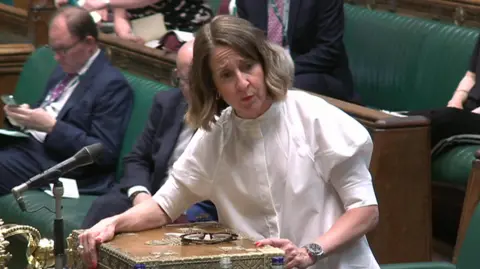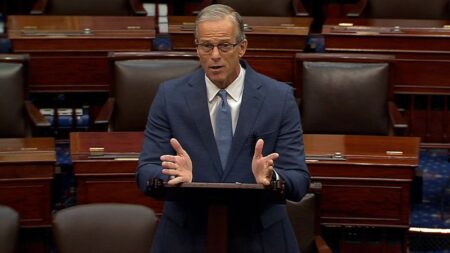In a significant parliamentary session, Work and Pensions Secretary Liz Kendall faced intense scrutiny from Labour MPs regarding the government’s rollout of changes to the welfare benefit system. This comes at a time when the government is attempting to quell a rebellion from its backbenchers over the proposed amendments which are perceived as detrimental to those reliant on government support.
Last week marked a pivotal moment for the government’s approach towards the Personal Independence Payment (PIP) scheme, with a notable U-turn that established stricter eligibility criteria. The government has clarified that these changes will only affect new claimants seeking benefits after November 2026, thereby allowing current claimants to retain their rights without being subjected to the revised standards that come with the rollout. Furthermore, an important commitment has been made to engage with disability organizations for a comprehensive review of the assessment process, which is expected to be completed by autumn 2026.
However, the Labour backbench MPs have expressed their concerns regarding the premature implementation of these changes before the anticipated review is even conducted. During the exchanges in Parliament, a number of Labour representatives questioned the justification behind altering the qualifying criteria for PIP before the outcome of the review is known.
Kendall assured the members of Parliament that any recommendations stemming from the review, led by disability minister Sir Stephen Timms, would be executed promptly after its conclusion. She emphasized that the review would not be conducted with an agenda to curtail spending; rather, it aims to ensure that the benefits system remains equitable and relevant for today’s needs.
PIP assessments are designed to evaluate the extent of an individual’s difficulty in performing everyday tasks, with scoring ranging from zero to twelve points, depending on the severity of the disability. Under the proposed reforms, new claimants would have to score a minimum of four points in a singular activity to qualify for benefits, as opposed to qualifying across multiple tasks as was previously the case.
Critics like Debbie Abrahams, who chairs the Work and Pensions Committee, have pointed out that the review should holistically determine both the assessment process and the scoring criteria rather than predefining a scoring benchmark. Similarly, Dame Meg Hillier, the chair of the Treasury Committee, pressed Kendall for the reasoning behind pre-setting this four-point threshold prior to the completion of the review. Another Labour MP, Sarah Owens, raised the pivotal question of the logic in initiating changes for future claimants before the Timms review’s findings are available.
The government’s decision was precipitated by the alarming prospect of over 120 Labour MPs, including figures such as Dame Meg and Abrahams, threatening to block critical legislation regarding Universal Credit and Personal Independence Payments. Although the concessions made recently by the government were viewed by some as sufficient to ease tensions within their ranks, it is estimated that around 50 Labour MPs are still poised to oppose the bill.
During the debate, Kendall reiterated her commitment to listening to concerns and making affirmative changes. Yet, the response from opposition was largely critical, with Conservative shadow work and pensions secretary, Helen Whately, describing the government’s proposal as a “rushed and chaotic compromise” with supposed savings of £2.5 billion against a £100 billion expenditure. The Liberal Democrats, through their spokesman Steve Darling, also cautioned against the rushed nature of the legislation, highlighting the risk of creating unforeseen ramifications for those affected.
In conclusion, the government’s plans surrounding benefit reforms are under intense scrutiny and criticism, particularly from Labour MPs, creating a contentious atmosphere in Parliament as they debate the balance between necessary financial prudence and the ethical implications of welfare changes on vulnerable populations.











